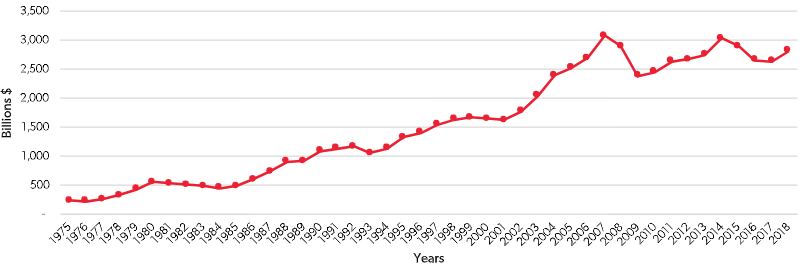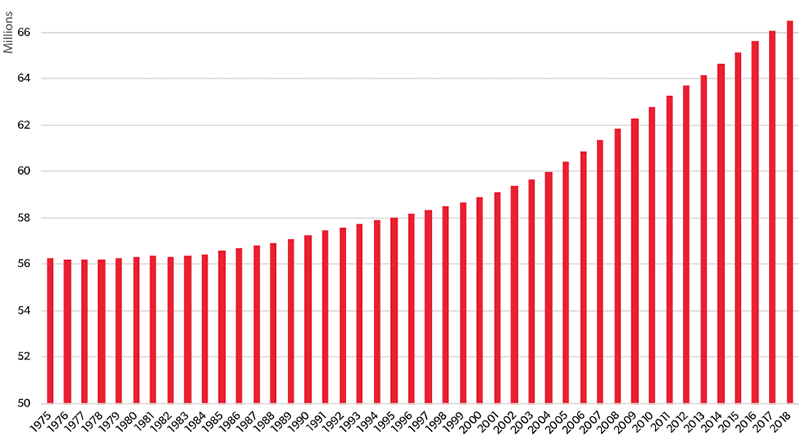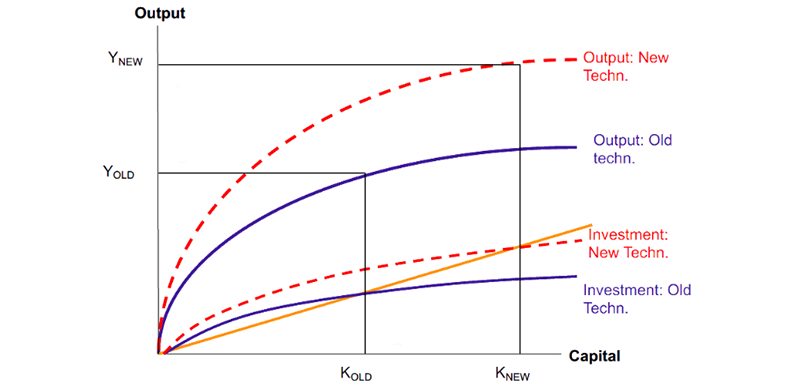The view of a Brexit deal with the newly appointed United Kingdom (UK) seems more and more an impossibility. The tensions continue to raise with Boris Johnson pushing for another parliament suspension and abandoning negotiations with the European Union (EU). The potential blueprint for resolving the Northern Ireland backstop is viewed as a critical point to the UK negotiations. The Northern Ireland remaining in the EU customs union forever is considered as an impossibility to EU members. The scheduled EU deadline at 23:00 GMT on 31 October 2019 continues approaching rapidly. What would be a direct impact on the main macroeconomic KPI's and how Portugal Nearshore IT services could be an asset to use in the upcoming European divorce?

The economic future growth prospects of the UK can be performed by considering the GDP and the components of great macro-economic relevance1.

Where (C) corresponds to consumption, (I) investment, (G) government and (X-M) net exports. The GDP can also be defined by three factors, Capital Stock (K), Labour (L) and the Total Factor of Productivity (TFP), as described in2 [2].

The total GDP (current $) generated in the UK between 1975 to 2018 is showed in Figure 1.

Figure 1 – Total GDP (current $) in UK from 1975 to 20183
From Figure 1 and considering the past 15 years’ period, the economy grew between 2000 to 2008, before the global crises. The TFP captures all the factors that affect output and are not mentioned as a factor of production 4 , namely education and government policies among other factors, where the migration made in 2018 circa 14%3 of the population. The population growth in the UK is shown below.

Figure 2 – Population growth in the UK3
Expatriates highly supported the UK’s population growth. In 2018 a percentage of 38%5 of expatriates foreign born of UK were located in London, while within the population can be considered an unemployment rate of 4%3.
The UK economy is not solely dependent on the financial sector, and other services, the technological development and advancements in this area are of great importance to the economy, especially in the long-run. The UK is a key player in the world technological advancements and attracting highly specialized technical talent. Investments in jobs creation were stalling and fell to 812.0006 in 2018, a number significantly lower compared to the initial turmoil of the Brexit news back in 2017. This indicator is of great importance since it corroborates the previsions of a potential economic recession.
The total output potential in the next 20 years can be seen as a long-run growth, and the actions taken now are crucial to ensure the desired rate of growth is achieved. The policies to be set by the UK government are critical due to the current phase of negotiations with the EU and risk of a no-deal. The no-deal Brexit policies do not encourage immigration of highly qualified expats into the UK. This political option will contribute to halting technological progress, shifting the long-run output generated and the steady-state into the wrong trajectory. The desirable and ideal effect of a Brexit negotiation with policies that foster the immigration of highly qualified expats is shown in Figure 3.

Figure 3 – Technological impact in the output7
The position of the current UK government led by Boris Johnson is known, and one can predict that the economy will face challenges to recover from a down cycle provoked by Brexit. The technological impact on the long-run GDP will not support the output in the short-term, due to the policies to be introduced. Technology in advanced economies is essential to improve the output, when countries get richer the source of the economic growth shifts from capital accumulated to TFP improvements. The UK economy will potentially reach a steady-state in the short term if a no-deal is the exit path of the EU. The economy depends on labour, capital stock and TFP, where policies that do not retain the right talent will not allow the necessary technological progress on the long-run. The labour that may enable to redefine the steady-state along the time will be expelled of the UK in the current scenario. The importance of human capital in economies can be observed through the continued investment in educational institutions, helping to achieve long-term growth. But the UK needs additional labour to respond to the already existing demands of high qualified labour.
History plays an important role to understand how alliances can play a role in modern history. The established Anglo-Portuguese alliance in the XIV century is one of the oldest in the world. This English alliance will undoubtedly play an essential role in Brexit and support the TFP and the required technological advancements.
Portugal will play an important role in the short-term, currently offers the best in class engineering institutions, and has become a European technological reference hosting since 2016 Web Summit. All the young population speaks English, and the optimism in the country is contagious cross sectors, mainly in the technological one. Portugal Nearshore IT services will become a piece in solving the economic puzzle of the UK by answering with the highly qualified expats that the UK will require.
Nearshore IT Services will be a tool to leverage in supporting IT requirements through dedicated software teams, that deliver IT solutions remotely with affordable and efficient solutions. This solution will certainly be appealing since Portugal offers access to the best, experienced talent with language & cultural similarities.
Conclusion
In conclusion, the existent English Alliance and the high qualified talent available in Portugal will be a tool to support the UK technological development’s needs. Nearshore IT services will be a part of the puzzle that will be essential to support the UK economy through a no-deal or hard Brexit turmoil. Portuguese nearshore services will add another factor that will be beneficial, as it currently presents lower development costs compared to the existent in the UK, offering higher quality as a principle.
- D., Breedon F. and Scott A., (2012). Macroeconomics - Understanding the Global Economy. Wiley, pp. 20.
- Reichlin L. and Scott A. (2016). Understanding the International Economy s2.
- World DataBank (2016). DataBank Website. [online] Available at: http://databank.worldbank.org/data/home.aspx [Accessed 09 Oct. 2019].
- Miles, D., Breedon F. and Scott A., (2012). Macroeconomics - Understanding the Global Economy. Wiley, pp. 51.
- Migrants in the UK - an overview (2019). The migration observatory. [online] Available at: https://migrationobservatory.ox.ac.uk/resources/briefings/migrants-in-the-uk-an-overview/ [Accessed 10 Oct. 2019].
- UK economy falters as slowing global growth adds to recession risk (2019). The Guardian. [online] Available at: https://www.theguardian.com/business/2019/aug/28/uk-economy-falters-as-slowing-global-growth-adds-to-recession-risk [Accessed 9 Oct. 2019].
- Reichlin L. and Scott A. (2016). Understanding the International Economy s3.



